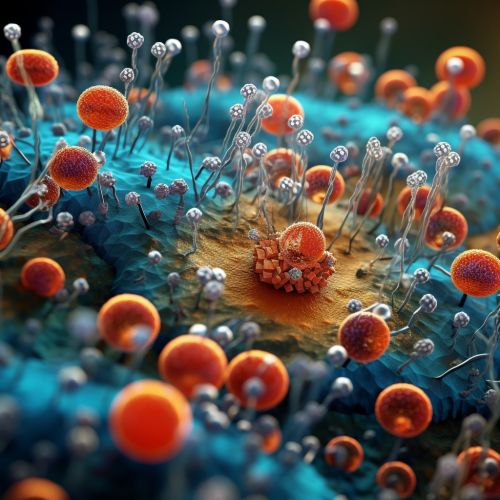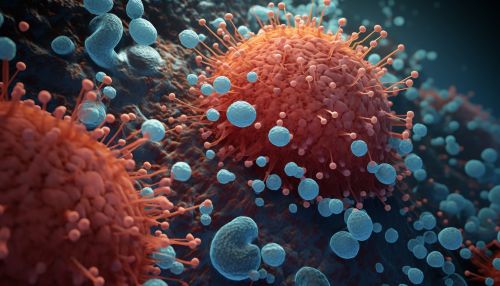Protein degradation
Overview
Protein degradation is a critical biological process that involves the breakdown of proteins within cells. This process is essential for maintaining cellular homeostasis and is involved in various physiological and pathological conditions. Protein degradation can be achieved through several mechanisms, including the proteasomal, autophagic, and lysosomal pathways.


Protein Degradation Pathways
Proteasomal Pathway
The proteasomal pathway is the primary mechanism for protein degradation in eukaryotic cells. This pathway involves the ubiquitin-proteasome system (UPS), which targets proteins for degradation by tagging them with ubiquitin molecules. The ubiquitinated proteins are then recognized and degraded by the 26S proteasome, a large protein complex that acts as a proteolytic machine.
Autophagic Pathway
Autophagy is another major pathway for protein degradation. This process involves the sequestration of cytoplasmic components, including proteins, within double-membrane vesicles known as autophagosomes. The autophagosomes then fuse with lysosomes to form autolysosomes, where the sequestered components are degraded by lysosomal enzymes.
Lysosomal Pathway
The lysosomal pathway involves the degradation of proteins within lysosomes, organelles that contain a variety of hydrolytic enzymes. This pathway is particularly important for the degradation of extracellular proteins that are internalized by the cell through endocytosis, as well as for the degradation of membrane proteins and organelles.
Regulation of Protein Degradation
Protein degradation is tightly regulated to ensure that proteins are degraded at the appropriate time and place. This regulation is achieved through several mechanisms, including the control of ubiquitin-proteasome system activity, the regulation of autophagy, and the control of lysosomal function.
Role in Disease
Abnormalities in protein degradation can lead to various diseases. For example, defects in the ubiquitin-proteasome system have been implicated in neurodegenerative diseases such as Parkinson's and Alzheimer's. Similarly, dysregulation of autophagy has been associated with cancer, neurodegeneration, and aging. Furthermore, lysosomal storage diseases are caused by defects in lysosomal function, leading to the accumulation of undegraded proteins and other macromolecules within cells.
